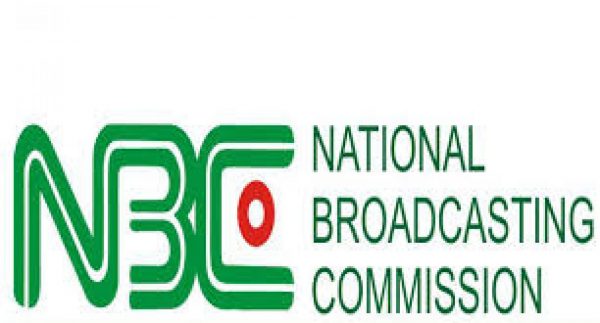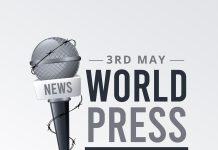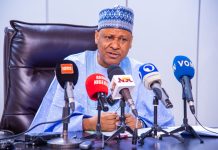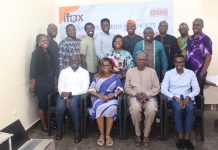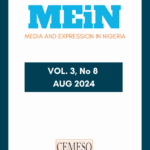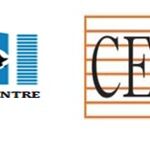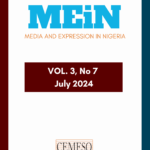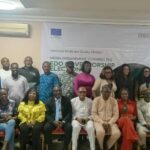The National Broadcasting Commission says plans are underway to begin analogue switch off in six locations starting with Abuja, as from next year.
The commission also said a new Digital Switch Over timeline would soon be released by the Federal Government.
Speaking at the 72nd General Assembly of Broadcasting Organisations of Nigeria in Lagos, the Director General, NBC, Mallam Modibo Kawu, who was represented by the Director, Investigation and Enforcement, Ojone Otonoku, said other regions that would be switched off were Kaduna, Enugu, Jos, Ilorin and Osogbo.
“Abuja has been earmarked for a pilot switch off by the beginning of next year. To this end a field strength measurement survey has been completed by the Digiteam.
“ Areas, where gap fillers are needed to ensure digital signal gets to at least 95 percent of the population, have been identified,” he added while giving updates on the Digital Switch Over.
The country had missed three deadlines in its complete transition from analogue to digital television over allegations of nepotism and misappropriation of funds.
The DG said online portal and Unstructured Supplementary Service Data options had been created for renewal of Direct Access Fee and payment of PVOD services.
He added that planning towards audience measurement implementation had also started with stakeholders in advertising.
Kawu recalled that the 71st General Assembly was an opportunity to advance the conversation on the Digital Switchover implementation, especially on the issue of carriage fee payable to signal distributors.
He pointed out that the admission of the two licensed Signal Distributors – Integrated Television Services and Pinnacle Communications Limited – eliminated cracks in the DSO framework, which separated the function of the content provider and the broadcasting signal distributor.
He said despite the current funding and operational challenges encountered in the DSO process, stakeholders had continued to cooperate with the NBC in the digital switchover journey.
The Minister of Information and Culture, Alhaji Lai Muhammed, who was represented by a Director at NTA Lagos Network, said with the DSO, the new broadcasting code would focus on the protection of the creativity of content producers from TV shows to adverts.
“The time is now to invest in electronic and gadget. We must exhaust the commercial model and resolve subsidy for the poor. The DSO will create an opportunity for manufacturing switchover equipment for Nigeria and also supply Africa,” he added.
In his keynote address, the Secretary-General, Commonwealth Telecommunications Organisation, London, Mr Shola Taylor, said Increased broadband penetration was crucial, adding that the telecom industry contributed 10 per cent to Nigeria’s Gross Domestic Product in the last quarter.
He added that broadband contributed to the growth of broadcast industry leading to increased participation and emergence of new content providers.
He said that the political will to ensure the CSO was fully implemented was
Important.
“I will like to see an enhanced engagement between stakeholders. It is high time the DSO be brought back,” he added.
The Chief Executive Officer, TVC Communications, Andrew Hanlon, said the Digital Terrestrial Transmission held a lot of opportunities for stakeholders in the country as well as the government.
According to him, the estimated number of boxes that will be required for the digital switch over and how it will be subsidised for Nigerians need to be determined.
“The advantages of DTT are enormous. People will be able to see more television channels and more radio channels with higher quality in sound and pictures. It is a positive thing for Nigerian and we need to make it happen soon because we have missed three deadlines.
“Also, the federal and state governments need to engage in an educational campaign for all viewers so that people can understand what is happening because many don’t understand what DTT means,” Hanlon added.
The acting Chair, Broadcasting Organisations of Nigeria, Godfrey Ohunbunwa, expressed worry at the slow pace of the digital transition, adding that funding and regulation were crucial to the success of the DSO
Ohunbunwa said, “For the NBC, a firm benchmark and regulation is critical. Without this, there is doubt and no clarity of purpose. We need this for every investor and broadcaster to be able to plan ahead.
“Citizens need to enjoy DTT because technology is changing every day. The main essence of DSO is that it creates opportunity for Nigerians to create more jobs, bring better broadcasting quality and for the Federal Government to generate revenue from TV license fee. The government is losing revenue every day it delays.”


